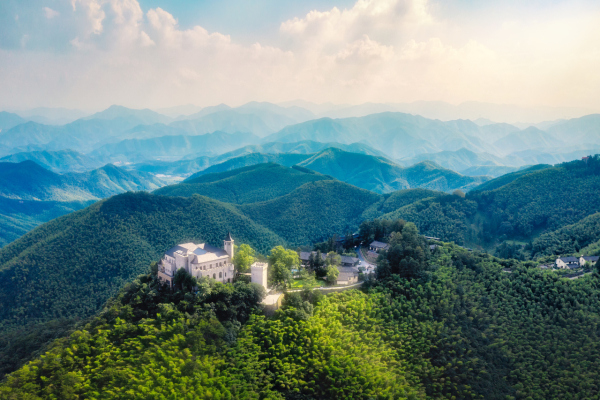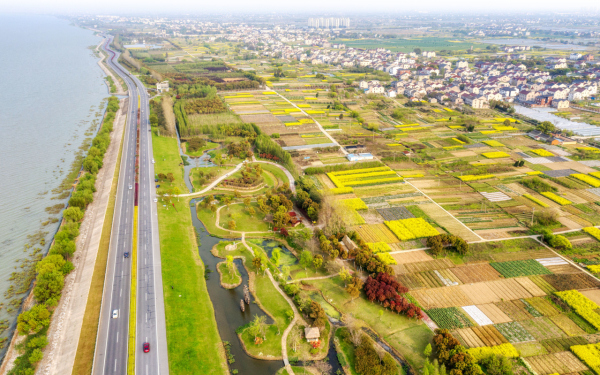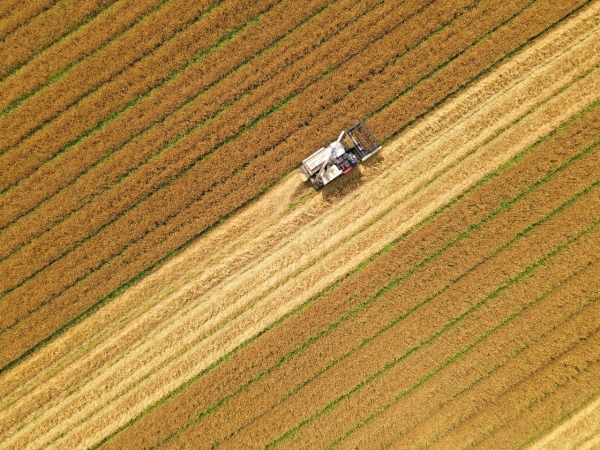Travelling all over the elegant and beautiful Jiangnan, Huzhou is the only place to live for a lifetime.
A Yuan (1271-1368) poem thus heaps praise on Huzhou, a city with a history of over 2,000 years and the only city that is named after the Taihu Lake. Now, in Huzhou, a new generation of farmers are bustling around: advanced agricultural machinery is galloping forward merrily; in farmers’ courtyards, family traditions and instructions are being passed down; and along the village green trails, throngs of tourists are enjoying the idyllic rural life…
As the birthplace of China’s Beautiful Countryside Campaign, Huzhou is witnessing a revitalization of its rural areas.
In 2008, Huzhou’s Anji county took the lead in building a “new socialist countryside”. Over the past decade, the county has been restoring the rural ecology by implementing Zhejiang’s “Green Rural Revival Program”. Villages have been renovated, and rural landscapes have got full facelifts during the process. “Beautiful villages” are now Huzhou’s “golden name card”.

Since 2020, Huzhou has selected a number of model villages, and established a system where, instead of an individual village working on its own, a group of villages with similar endowments or features would pool their resources and collaborate in their efforts to improve the local environment and develop local economy through promoting featured industries like tourism. Villages in the city’s Wuxing district, Nanxun district and Wuxing county have been cooperating in exactly such a manner and “integrated areas” encompassing these villages are being set up.
For example, along the south bank of the Taihu Lake, rather than each village “minding their own businesses” within their village boundaries, six villages have planted reeds together, erecting a “Green Great Wall” protecting the lake’s ecology. In Deqing county’s Moganshan area, 10 villages are sharing an integrated digital map that provides accurate online tourist information: it not only proves more convenient for tourists, but is more cost-effective for those villages involved.
These integration measures have greatly magnified the multiplier effect of the “Beautiful Countryside”. Indeed, Huzhou is committed to fully revitalizing agricultural resources through a series of reforms and innovative ideas.
“In the past, nothing could be done here except farming,” said Zhu Renyuan, an owner of a family-run farm commonly seen now in Huzhou. He’s been busy with harvesting white tea for the past few days, and planning to establish a white tea research base. “Today, on the same piece of land, whose ownership still belongs to the village collective, I can legally build a research base, and programs such as farming experience, children's summer camps can be arranged.”

Zhu is the first recipient of the so-called rural “standard land”, which not only allowed for commercial use of rural lands, but also significantly lowered the costs of land transfer. In the process, a new path of development integrating agricultural production, agricultural products processing and agriculture-related services has been opened for rural areas. So far, a total of 82 projects have been approved for their applications of rural “standard land”.
A “Beautiful Country” cannot be judged “beautiful” if progress is only made in the material aspect. Over the years, Huzhou has been continually improving public etiquette and ethical standards in the countryside.
“The applicant and the cook need to sign their names on the form,” Chen Zhifeng, a villager from Chenjiadai village, Hongqiao township of Changxing county, recalled the banquet held for his daughter’s wedding. “No waste of food is allowed!” The form Chen mentioned is specially designed for occasions like wedding, funerals and birthdays, when banquets are traditionally thrown, to cut waste.
In Shuanglin township, Nanxun district, a manual of family instructions compiled by Gu Zhensheng, a local resident, has become the “family bible”. In eight chapters and more than 50,000 words, Gu’s family traditions are told in vivid stories. “My family have learned a lot in these instructions and traditions, and we are greatly inspired both in life and at work,” said Gu Yongping, Gu Zhensheng’s son and a model worker at Nanxun district.
In Huzhou, rural revitalization and urban development are making it more than a “place to live for a lifetime”.

